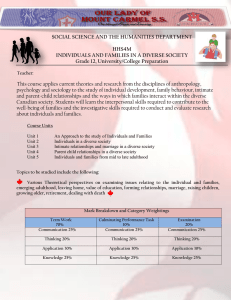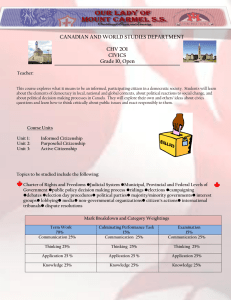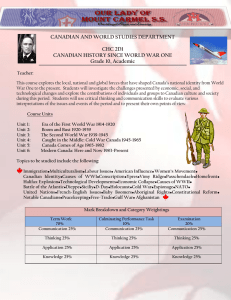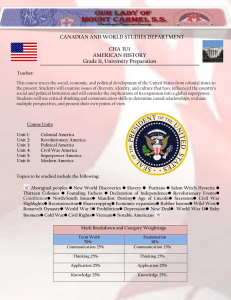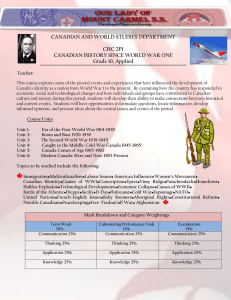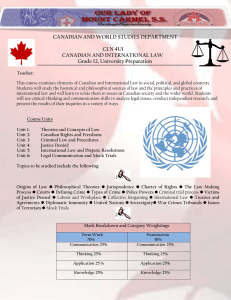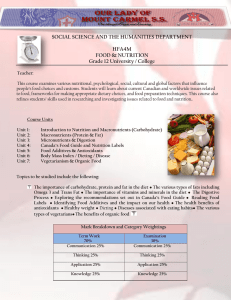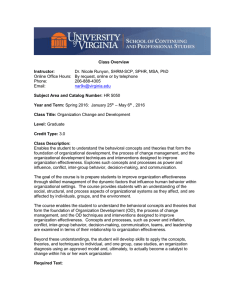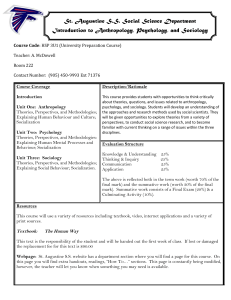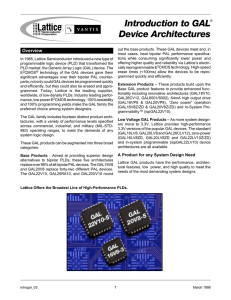Document 14267666
advertisement
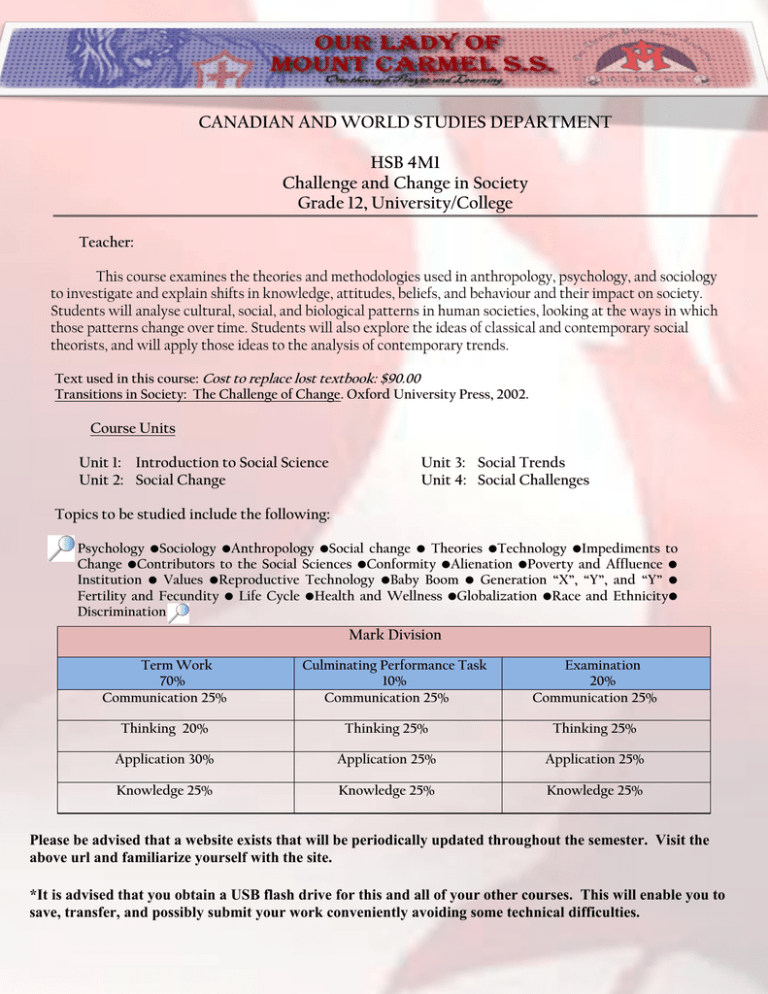
CANADIAN AND WORLD STUDIES DEPARTMENT HSB 4M1 Challenge and Change in Society Grade 12, University/College Teacher: This course examines the theories and methodologies used in anthropology, psychology, and sociology to investigate and explain shifts in knowledge, attitudes, beliefs, and behaviour and their impact on society. Students will analyse cultural, social, and biological patterns in human societies, looking at the ways in which those patterns change over time. Students will also explore the ideas of classical and contemporary social theorists, and will apply those ideas to the analysis of contemporary trends. Text used in this course: Cost to replace lost textbook: $90.00 Transitions in Society: The Challenge of Change. Oxford University Press, 2002. Course Units Unit 1: Introduction to Social Science Unit 2: Social Change Unit 3: Social Trends Unit 4: Social Challenges Topics to be studied include the following: Psychology •Sociology •Anthropology •Social change • Theories •Technology •Impediments to Change •Contributors to the Social Sciences •Conformity •Alienation •Poverty and Affluence • Institution • Values •Reproductive Technology •Baby Boom • Generation “X”, “Y”, and “Y” • Fertility and Fecundity • Life Cycle •Health and Wellness •Globalization •Race and Ethnicity• Discrimination Mark Division Term Work 70% Communication 25% Culminating Performance Task 10% Communication 25% Examination 20% Communication 25% Thinking 20% Thinking 25% Thinking 25% Application 30% Application 25% Application 25% Knowledge 25% Knowledge 25% Knowledge 25% Please be advised that a website exists that will be periodically updated throughout the semester. Visit the above url and familiarize yourself with the site. *It is advised that you obtain a USB flash drive for this and all of your other courses. This will enable you to save, transfer, and possibly submit your work conveniently avoiding some technical difficulties. Class Expectations You can expect in this class to… Learn and understand theories from all three disciplines of the social sciences Become familiar with relevant terminology Apply theories to practical uses such as reports Perform methodological research Participate in discussions and debates Orally present in front of your peers Be critical and creative Formative, diagnostic and summative assessments will include Test Reports Debates and discussions Group assignments Culminating Performance Task Final exam Students are expected to be responsible and committed to their learning by completing and submitting work and assignments and other forms of assessment and evaluation. Students are expected to be organized and prioritize to ensure success by planning, managing time, and being resourceful Students are expected to work independently by managing their own education, s well as collaboratively by accepting various roles, sharing with peers and responding positively to peers Students are expected to take initiative by looking for learning opportunities and nurturing their curiousity Students are expected to self-regulate by setting individual goals and monitoring their progress to achieve those goals, by asking for assisstance when needed, by perservering through challenges Students are expected to be aware of and follow all OLMC policies concerning assignments, attendance, emergency procedures, and student behaviour o The OLMC agenda is an essential tool for you to be informed of these policies and should not be discarded Students are to contribute to a safe and healthy learning environment Teacher is expected to assist students in achieving all of these expectations by the following o o o o o Ensuring a safe and equitable learning environment Assessing students learning in differentiated methods Providing students with proper and sufficient information Providing students with opportunities to learn Maintaining a mutually respectful environment NO ONE WILL GET IN THE WAY OF ANOTHER’S EDUCATION
